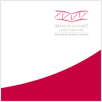Call for papers: Workshop on Social Purpose and International Order
Deadline for submissions: 15 January 2025
4-6 June 2025, Leiden University, The Hague, The Netherlands
Organizers: Prof. dr. Matthew Stephen (Helmut Schmidt University, Hamburg) and Prof. dr. Daniel C. Thomas (Leiden University, The Hague)
Workshop Agenda
International order today is deeply unsettled. The rise of new powers, China foremost among them, has undermined Western predominance and ushered in a new distribution of state power. In democratic countries, anti-globalist nationalism and populism have proliferated and find increasing electoral support. Autocratic countries display renewed confidence in shaping and building international order. Major power conflicts have seen a shift in agendas from trade liberalization and globalization to geoeconomics and “derisking.” Western hegemony appears to be waning and liberal order fraying.
These and other developments have led many students of international politics to ask whether international order is undergoing fundamental change, even a transformation into a different kind of order or a multiplicity of orders. Yet it is still not clear how deep such changes really are and whether processes of adaptation and evolution outweigh processes of decline or transformation. Much existing literature has focused on change in the distribution of power and its impact on the institutional structure of international order. While insightful, this workshop proposes that the narrow focus on power is inadequate to understanding the processes described above; instead, it is time to revive and develop the concept of social purpose.
In his landmark essay on international economic order, John Ruggie (1982) argued that international regimes cannot be understood without attention to both power and social purpose. Social purpose was understood to mean shared understandings of the ends that governance institutions are intended to accomplish. Given how many aspects of international order are now being contested by rising powers and coalitions of states advocating alternative ideas and institutions, it seems a good moment to revisit Ruggie’s concept as an approach to the evolution of international order.
Is there a common social purpose amongst the major powers or amongst other groups of states pursuing international cooperation? What does it consist of? How has it changed over time? How does variation in social purpose (including its absence) affect processes, structures and outcomes of international cooperation, regional and global governance? The workshop seeks to investigate such questions from a variety of perspectives in multiple empirical contexts.
Workshop Format and Follow-Up
Workshop discussions will focus on concise but substantive research memos of around 3000 to 5000 words prepared by participants, plus a framework paper to be distributed in advance by the workshop organizers. The memos should engage with the concept of social purpose to understand international relations, order and change. Theoretical memos will deepen our understanding of social purpose as a heuristic concept for understanding international relations, order and change. Empirical memos may focus on historical or contemporary dynamics at the global or regional level. Following the workshop, we will explore possibilities to publish a collection of papers as a special issue or edited volume. We will then invite authors to make revisions for a follow-up workshop and/or a publication review process.
Funding
Thanks to generous support from Leiden University, meals and accommodation will be covered for workshop participants and there is no workshop fee. There will also be a travel subsidy for participants (details to follow), especially for early career researchers and researchers based in the Global South.
Proposal Submission
If you wish to participate, please submit a working title and abstract (200-300 words), plus a brief biographical statement (max 100 words) and contact details, to [email protected] no later than 15 January 2025. We will communicate our decisions on workshop participation in late January 2025.
Questions Please direct questions jointly to Matthew Stephen and Daniel Thomas at [email protected].
Here is the call in PDF format:
Letzte Änderung: 9. December 2024
